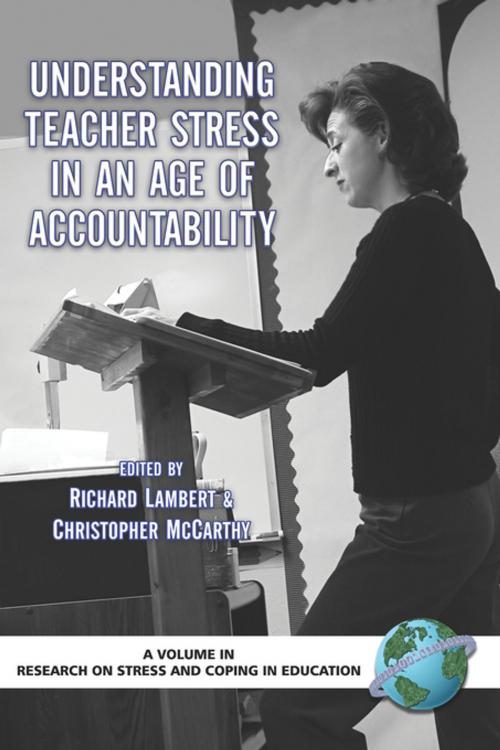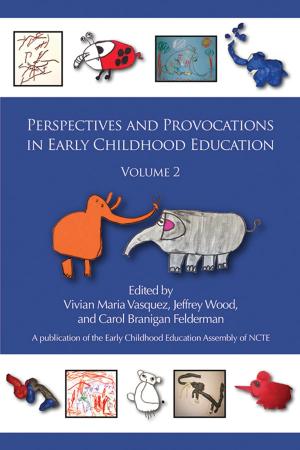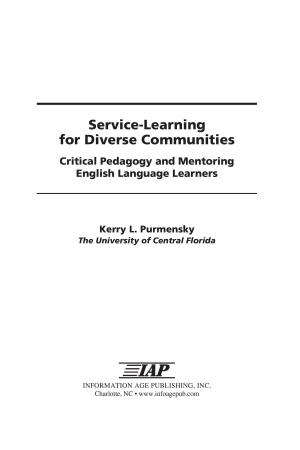Understanding Teacher Stress in an Age of Accountability
Nonfiction, Reference & Language, Education & Teaching, Higher Education, Teaching, Teaching Methods| Author: | ISBN: | 9781607525233 | |
| Publisher: | Information Age Publishing | Publication: | March 1, 2006 |
| Imprint: | Information Age Publishing | Language: | English |
| Author: | |
| ISBN: | 9781607525233 |
| Publisher: | Information Age Publishing |
| Publication: | March 1, 2006 |
| Imprint: | Information Age Publishing |
| Language: | English |
School districts today face increasing calls for accountability during a time when budgets are stretched and students’ needs have become increasingly complex. The teacher’s responsibility is to educate younger people, but now more than ever, teachers face demands on a variety of fronts. In addition to teaching academic content, schools are responsible for students’ performance on statewide tests. They are also asked to play an increasingly larger role in children’s wellbeing, including their nutritional needs and social and emotional welfare. Teachers have shown themselves to be more than capable of taking up such challenges, but what price is paid for the increasing demands we are placing on our schools? Understanding Teacher Stress in an Age of Accountability is about the nature of teachers stress and the resources they can employ to cope with it. Accountability is a twoway street and the authors in this volume suggest remedies for reducing teacher stress and in all likelihood increasing student learning—greater administrative support, more and better instructional materials, specialized resources targeted at demanding children, parental support, and professional recognition. Readers will discover that lack of funding, low pay, concerns about academic performance and student misbehavior, and increased public and governmental scrutiny are not exclusive to the United States. In this volume, the third in a series on Research on Stress and Coping in Education, authors from Australia, Turkey, Malaysia, and the Netherlands sound the same alarms, post the same warnings, and draw similarly disturbing conclusions.
School districts today face increasing calls for accountability during a time when budgets are stretched and students’ needs have become increasingly complex. The teacher’s responsibility is to educate younger people, but now more than ever, teachers face demands on a variety of fronts. In addition to teaching academic content, schools are responsible for students’ performance on statewide tests. They are also asked to play an increasingly larger role in children’s wellbeing, including their nutritional needs and social and emotional welfare. Teachers have shown themselves to be more than capable of taking up such challenges, but what price is paid for the increasing demands we are placing on our schools? Understanding Teacher Stress in an Age of Accountability is about the nature of teachers stress and the resources they can employ to cope with it. Accountability is a twoway street and the authors in this volume suggest remedies for reducing teacher stress and in all likelihood increasing student learning—greater administrative support, more and better instructional materials, specialized resources targeted at demanding children, parental support, and professional recognition. Readers will discover that lack of funding, low pay, concerns about academic performance and student misbehavior, and increased public and governmental scrutiny are not exclusive to the United States. In this volume, the third in a series on Research on Stress and Coping in Education, authors from Australia, Turkey, Malaysia, and the Netherlands sound the same alarms, post the same warnings, and draw similarly disturbing conclusions.















